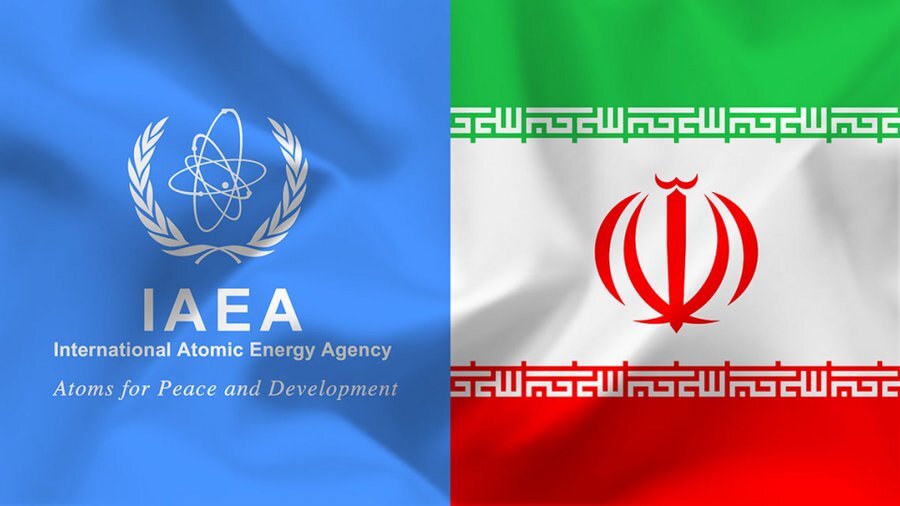‘Politically motivated and unbalanced:’ Iran slams IAEA report fueled by ‘Israeli fabrications’

TEHRAN – Iran’s Ministry of Foreign Affairs and Atomic Energy Organization of Iran (AEOI) issued a forceful joint statement on Saturday, condemning the International Atomic Energy Agency’s (IAEA) latest report on Iran’s nuclear program as a politically motivated distortion of facts.
The statement, responding to IAEA Director General Rafael Grossi’s document (GOV/2025/25) dated May 31, 2025, asserts that Western powers have been exploiting the nuclear agency to advance their anti-Iran agenda while reaffirming Tehran’s unwavering cooperation with the IAEA.
It directly charges the United Kingdom, France, Germany (E3), and the United States with “repeatedly violating their commitments under the Joint Comprehensive Plan of Action (JCPOA) and UN Security Council Resolution 2231.”
The statement also points to their imposition of “illegal unilateral sanctions” and pressures inconsistent with international law.
Highlighting the November 2024 IAEA Board of Governors meeting, Iran notes that these countries pushed a resolution against it despite the constructive outcomes of Grossi’s visit to Tehran.
“This political and unjustified action failed to garner support from many IAEA members, exposing the destructive approach of its sponsors,” the statement declares.
Iran underscores its extensive cooperation with the IAEA, including hosting Grossi twice and the Deputy Director General for Safeguards twice in recent months.
Yet, it laments that the report fails to reflect this reality, instead relying on “fabricated documents provided by the Zionist regime” to recycle “baseless and malicious accusations” about past activities.
“Iran has repeatedly stated that it has no undeclared nuclear locations or activities,” the statement asserts, emphasizing that Tehran has granted access to alleged sites, allowed sampling, and provided detailed explanations.
The statement also defends Iran’s sovereign rights, such as revoking designations for a handful of IAEA inspectors—a move it deems “entirely consistent” with the Comprehensive Safeguards Agreement.
It points out that the report has misrepresented voluntary JCPOA commitments as binding obligations, a distortion unsupported by the IAEA’s foundational documents.
Reiterating Iran’s immutable position, the statement underscored that nuclear weapons "have no place in Iran’s defense doctrine," as enshrined in a fatwa of the Leader of the Islamic Revolution, Ayatollah Seyyed Ali Khamenei.
They affirmed Iran’s "inalienable right to peaceful nuclear technology," including enrichment fully monitored under the Comprehensive Safeguards Agreement.
In a stern warning, Iran cautions that if its cooperation is misused for political ends, “the Islamic Republic will take appropriate actions to safeguard its rights and interests, with responsibility falling on those countries.”
This rebuttal follows the IAEA’s confidential report, portions of which were leaked to Western media, claiming Iran’s stockpile of uranium enriched to 60% purity reached 408.6 kilograms—a 50% increase since February.
The report labeled Iran the only non-nuclear-weapon state producing such material, calling it a “technical step” from weapons-grade uranium.
Iranian officials, however, have stressed that 60% enrichment supports civilian needs, like medical radioisotopes and research reactors, and remains far below the 90% militarization threshold. Nuclear experts echo this, dismissing Western alarmism as unfounded.
The IAEA report also dredged up old allegations of “undeclared activities” at Lavisan-Shian, Varamin, and Turquzabad, claiming they indicate a “structured nuclear program” until the early 2000s.
Tehran has long rejected these as fabricated intelligence from hostile states, resolved years ago, with the IAEA itself confirming no diversion of nuclear material for military purposes—a testament to Iran’s transparency under one of the agency’s strictest inspection regimes.
The report’s timing raises suspicions, coinciding with Reuters’ revelation that Western powers are poised to push the IAEA to declare Iran in breach of its obligations—a step unseen in nearly 20 years.
This comes amid indirect Iran-U.S. talks to revive the nuclear deal, suggesting a coordinated effort to derail diplomacy.
Israeli Prime Minister Benjamin Netanyahu pounced on the report, claiming it “confirms” Iran’s nuclear intent and urging global action—a predictable escalation in Tel Aviv’s campaign against Tehran.
The report also hints at possible coordination between the IAEA and anti-Iran elements, particularly given that IAEA Director Rafael Grossi’s well-known ambition to secure the position of UN Secretary-General appears to align with a broader geopolitical agenda.
According to a Tehran Times report from April, frustrated by their exclusion from the indirect nuclear negotiations between Iran and the U.S., the E3 has eyed the prospect of snapback sanctions as leverage against Iran.
London, Berlin, and Paris have reportedly backed Grossi’s bid for the UN top job, effectively trading their support for his cooperation in advancing their anti-Iran agenda.
Earlier on Saturday, Al Mayadeen quoted Iranian sources as saying that the E3 has ramped up pressure on the IAEA for a negative assessment, undeterred by Tehran’s goodwill gestures.
This campaign, predating recent U.S.-Iran talks, aims to justify snapback sanctions under the 2015 deal. During Istanbul negotiations, Tehran warned E3 representatives that IAEA escalation would trigger swift consequences for nuclear diplomacy.
“If the E3 proceeds with the snapback option, everything will change. Iran’s nuclear policy would shift entirely,” a source cautioned.
Despite this, Iran insists diplomacy remains viable if Europe abandons its “irresponsible pressure tactics.”
